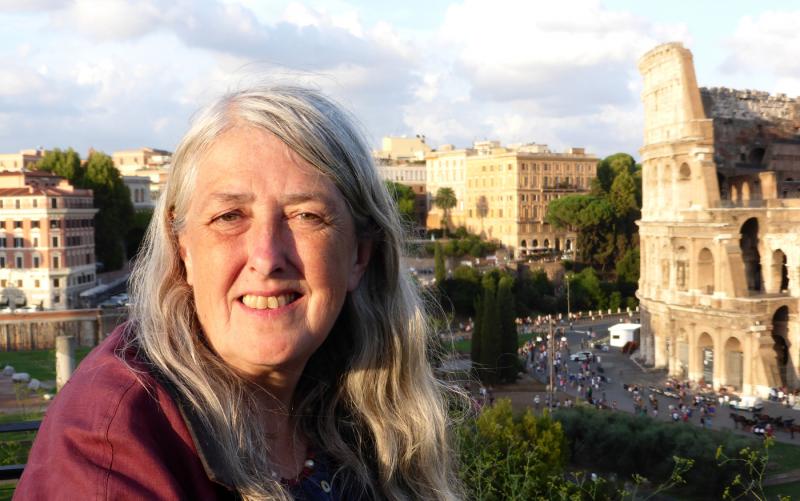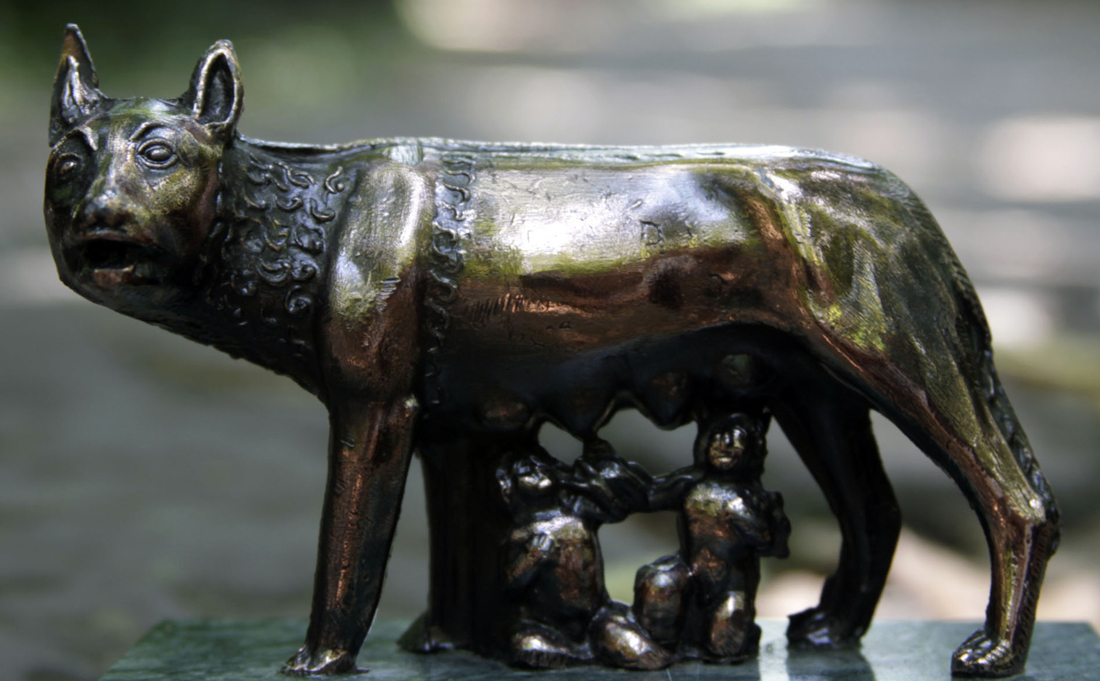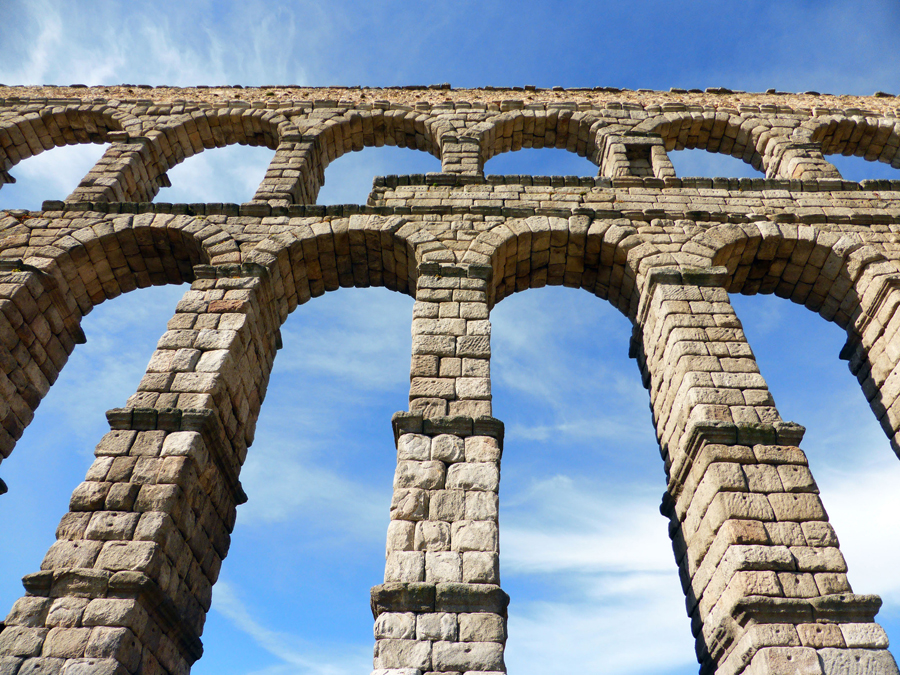Mary Beard's Ultimate Rome: Empire without Limit, BBC Two | reviews, news & interviews
Mary Beard's Ultimate Rome: Empire without Limit, BBC Two
Mary Beard's Ultimate Rome: Empire without Limit, BBC Two
How did all the roads in the ancient world end up leading to Rome?

The world of antiquity, from Greece to Rome, is both so familiar and so unknown. So it was more than welcome when the immensely knowledgable Professor Mary Beard – the role of the academic, she announced, is to make everything less simple – enthusiastically embarked on this four-part televisual history of Rome and its empire’s rise and fall.
The first instalment included examinations of the city of Rome, journeys around what became the Roman sea, the Mediterranean (Mare Nostrum, Our Sea) with some stopovers, and nifty aerial maps to show us Rome’s expansion. Why the Romans? was her fundamental question. Did the greatness of Rome and its power happen because of their empire-building, or did the Romans create the empire because they were already powerful?
Scholars still argue whether Rome conquered Greece or Greece conquered Rome
Indeed, all roads were to lead to Rome, and here was the Professor, striding along the Appian Way. Beyond her brisk walks through the byways and highways of Rome, our guide took to every form of transport to facilitate her journey – bicycle, cars, including a sports car, in which she sped along those typically long and straight Roman roads, helicopter, tuk tuk and sea-going archaeological ship, dredging up the remnants of the great sea battle between Rome and Carthage in 214 BC.
We started with the founding myth, that had much in common with the stories of family dysfunction so characteristic of every religion, not to mention contemporary fiction. A king, fearing potential rivalry if his infant twin sons reached maturity, ordered a servant to dispose of them; Romulus and Remus were carefully placed by the Tiber, in flood, but were rescued, suckled and nurtured by a she-wolf, herself of course a predator at the top of the food chain. But a few years later the twins founded Rome, and Romulus, a true son of the murderous father, committed fratricide. A handsome bronze antiquity showed us the baby boys reaching towards the lupine nipples.
Rome became the centre for an Empire that survived for six or seven hundred years, and at its height stretched from the fringes of the Sahara, North Africa and the Nile, from the west to the eastern Mediterranean, from Spain to Israel, and north to Gaul and Britain. It was perhaps the first globalisation. Little did R and R know their city would survive (so far getting on for 2800 years). The site was unprepossessing, but according to myth, Romulus – and our Professor blilthely underlined the relevance to now – invited outcasts, refugees, migrants, runaway slaves, even criminals and certainly asylum seekers to populate the new city. Outsiders were welcomed (bronze depiction of Romulus, Remus and the wolf, below).
 It was to be their commitment to conquest and military victory which was to set the Romans apart, originally under the guidance of Scipio Barbatus, the Bearded Scipio, strong wise and brave. Greed was a strong motivator, too: taking what you could get, and the wealth of others was a primary incentive.
It was to be their commitment to conquest and military victory which was to set the Romans apart, originally under the guidance of Scipio Barbatus, the Bearded Scipio, strong wise and brave. Greed was a strong motivator, too: taking what you could get, and the wealth of others was a primary incentive.
The military city needed women, and so invited a neighbouring tribe, the Sabines, to visit. They captured the women, kept them by force, and needless to say the so-called Rape of the Sabines has proved an immortal subject for art. When the Romans needed something, they simply went out and grabbed it. Simultaneously, they ran their fledgling empire by incorporating conquered people and land, extending citizenship. Romans ensured a permanent relationship with those they conquered, and the conquered were conscripted. Military might was predicated not on technologically advanced weaponry but on sheer manpower: by the 3rd century BC, the army was 700,000 strong.
Alliances were more improvised than planned. The first overseas war was with Carthage, over Sicily (241 BC); the Romans, not a naval power, simply copied the Carthaginian warships and their battering rams. Illustrating a fascinating cultural difference, the Carthaginian bronze battering rams were enlivened with engraved moral precepts, while the Romans indicated by name who had inspected the weapons to ensure their quality. From earliest times, they were bureaucratically gifted (Roman aqueduct in Segovia, Spain, below).
 A century later they had razed Carthage (146 BC) and sacked Corinth, the wealthiest city of Greece. Scholars even now argue whether Rome conquered Greece, which of course it did militarily, or whether Greece conquered Rome, as Romans imported by the boatload Greek art, and became addicted to Greek culture.
A century later they had razed Carthage (146 BC) and sacked Corinth, the wealthiest city of Greece. Scholars even now argue whether Rome conquered Greece, which of course it did militarily, or whether Greece conquered Rome, as Romans imported by the boatload Greek art, and became addicted to Greek culture.
The Mediterranean was the great trading route, the superhighway of the ancient world. Goods included spices, perfume, sculpture, furniture, and prisoners turned into slaves: a honeypot then, as now, for human traffickers. The scourge of piracy meant huge power shifts in Rome; in 69 BC pirates torched Delos, the biggest mercantile city in the world, and it was a provocation too far. Pompey was given unlimited power to rid Mare Nostrum of pirates, and Roman rulers became emperors. Emperors did not create the empire, rather the empire created the emperors. Under Augustus, peace came after pacification – that is, conquest – and a few ferocious atrocities. Divine birthright was traced back to Aeneas, the Trojan hero, who for Virgil was a descendant of Romulus and Remus, and founder of the Roman race.
In a few turbulent centuries, the Romans had turned from being cattle raiders to forming organised armies and taking over the world around them, creating the mythologies to justify their actions as they went. And in Rome, building as though there was a tomorrow: a living material history that Mary Beard enthusiastically deployed for her absorbing essay.
Lots to look at and even more to think about, and three more instalments to come.
rating
Explore topics
Share this article
The future of Arts Journalism
You can stop theartsdesk.com closing!
We urgently need financing to survive. Our fundraising drive has thus far raised £49,000 but we need to reach £100,000 or we will be forced to close. Please contribute here: https://gofund.me/c3f6033d
And if you can forward this information to anyone who might assist, we’d be grateful.

Subscribe to theartsdesk.com
Thank you for continuing to read our work on theartsdesk.com. For unlimited access to every article in its entirety, including our archive of more than 15,000 pieces, we're asking for £5 per month or £40 per year. We feel it's a very good deal, and hope you do too.
To take a subscription now simply click here.
And if you're looking for that extra gift for a friend or family member, why not treat them to a theartsdesk.com gift subscription?
more TV
 Murder Before Evensong, Acorn TV review - death comes to the picturesque village of Champton
The Rev Richard Coles's sleuthing cleric hits the screen
Murder Before Evensong, Acorn TV review - death comes to the picturesque village of Champton
The Rev Richard Coles's sleuthing cleric hits the screen
 Black Rabbit, Netflix review - grime and punishment in New York City
Jude Law and Jason Bateman tread the thin line between love and hate
Black Rabbit, Netflix review - grime and punishment in New York City
Jude Law and Jason Bateman tread the thin line between love and hate
 The Hack, ITV review - plodding anatomy of twin UK scandals
Jack Thorne's skill can't disguise the bagginess of his double-headed material
The Hack, ITV review - plodding anatomy of twin UK scandals
Jack Thorne's skill can't disguise the bagginess of his double-headed material
 Slow Horses, Series 5, Apple TV+ review - terror, trauma and impeccable comic timing
Jackson Lamb's band of MI5 misfits continues to fascinate and amuse
Slow Horses, Series 5, Apple TV+ review - terror, trauma and impeccable comic timing
Jackson Lamb's band of MI5 misfits continues to fascinate and amuse
 Coldwater, ITV1 review - horror and black comedy in the Highlands
Superb cast lights up David Ireland's cunning thriller
Coldwater, ITV1 review - horror and black comedy in the Highlands
Superb cast lights up David Ireland's cunning thriller
 Blu-ray: The Sweeney - Series One
Influential and entertaining 1970s police drama, handsomely restored
Blu-ray: The Sweeney - Series One
Influential and entertaining 1970s police drama, handsomely restored
 I Fought the Law, ITVX review - how an 800-year-old law was challenged and changed
Sheridan Smith's raw performance dominates ITV's new docudrama about injustice
I Fought the Law, ITVX review - how an 800-year-old law was challenged and changed
Sheridan Smith's raw performance dominates ITV's new docudrama about injustice
 The Paper, Sky Max review - a spinoff of the US Office worth waiting 20 years for
Perfectly judged recycling of the original's key elements, with a star turn at its heart
The Paper, Sky Max review - a spinoff of the US Office worth waiting 20 years for
Perfectly judged recycling of the original's key elements, with a star turn at its heart
 The Guest, BBC One review - be careful what you wish for
A terrific Eve Myles stars in addictive Welsh mystery
The Guest, BBC One review - be careful what you wish for
A terrific Eve Myles stars in addictive Welsh mystery
 theartsdesk Q&A: Suranne Jones on 'Hostage', power pants and politics
The star and producer talks about taking on the role of Prime Minister, wearing high heels and living in the public eye
theartsdesk Q&A: Suranne Jones on 'Hostage', power pants and politics
The star and producer talks about taking on the role of Prime Minister, wearing high heels and living in the public eye
 King & Conqueror, BBC One review - not many kicks in 1066
Turgid medieval drama leaves viewers in the dark
King & Conqueror, BBC One review - not many kicks in 1066
Turgid medieval drama leaves viewers in the dark
 Hostage, Netflix review - entente not-too-cordiale
Suranne Jones and Julie Delpy cross swords in confused political drama
Hostage, Netflix review - entente not-too-cordiale
Suranne Jones and Julie Delpy cross swords in confused political drama

Add comment